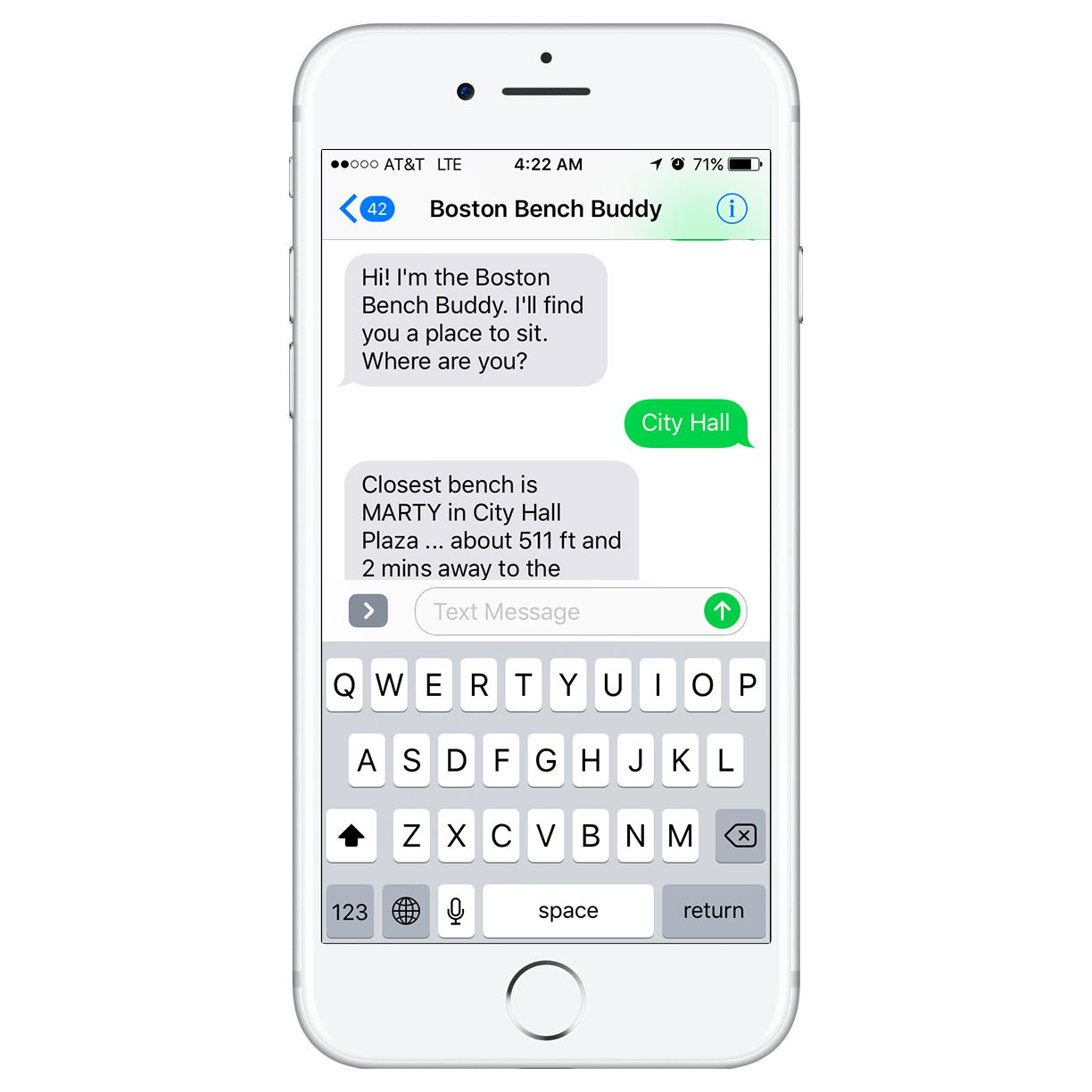I'm an interdisciplinary designer working at the intersection of society, technology and the built environment.
The Boston Bench Buddy
Helping residents of Boston age in place, with a simple SMS chat service that locates nearby public restrooms and benches.
CHALLENGE
Improve the accessibility of public space for older adults in Boston.
PROJECT
The Boston Bench Buddy, a prototype SMS service that uses geospatial datasets and APIs to provide text and map directions to nearby public restrooms and benches — key amenities that make walking easier for older adults, and everyone else.
Improve the accessibility of public space for older adults in Boston.
PROJECT
The Boston Bench Buddy, a prototype SMS service that uses geospatial datasets and APIs to provide text and map directions to nearby public restrooms and benches — key amenities that make walking easier for older adults, and everyone else.
DETAILS
Boston Mayor’s Office of New Urban Mechanics
Summer Fellowship
Summer 2017
AFTER
This work is enabling an upcoming Age-Friendly Boston Bench expansion program and a digital wayfinding system for public restrooms on boston.gov and 311.
Boston Mayor’s Office of New Urban Mechanics
Summer Fellowship
Summer 2017
AFTER
This work is enabling an upcoming Age-Friendly Boston Bench expansion program and a digital wayfinding system for public restrooms on boston.gov and 311.
︎
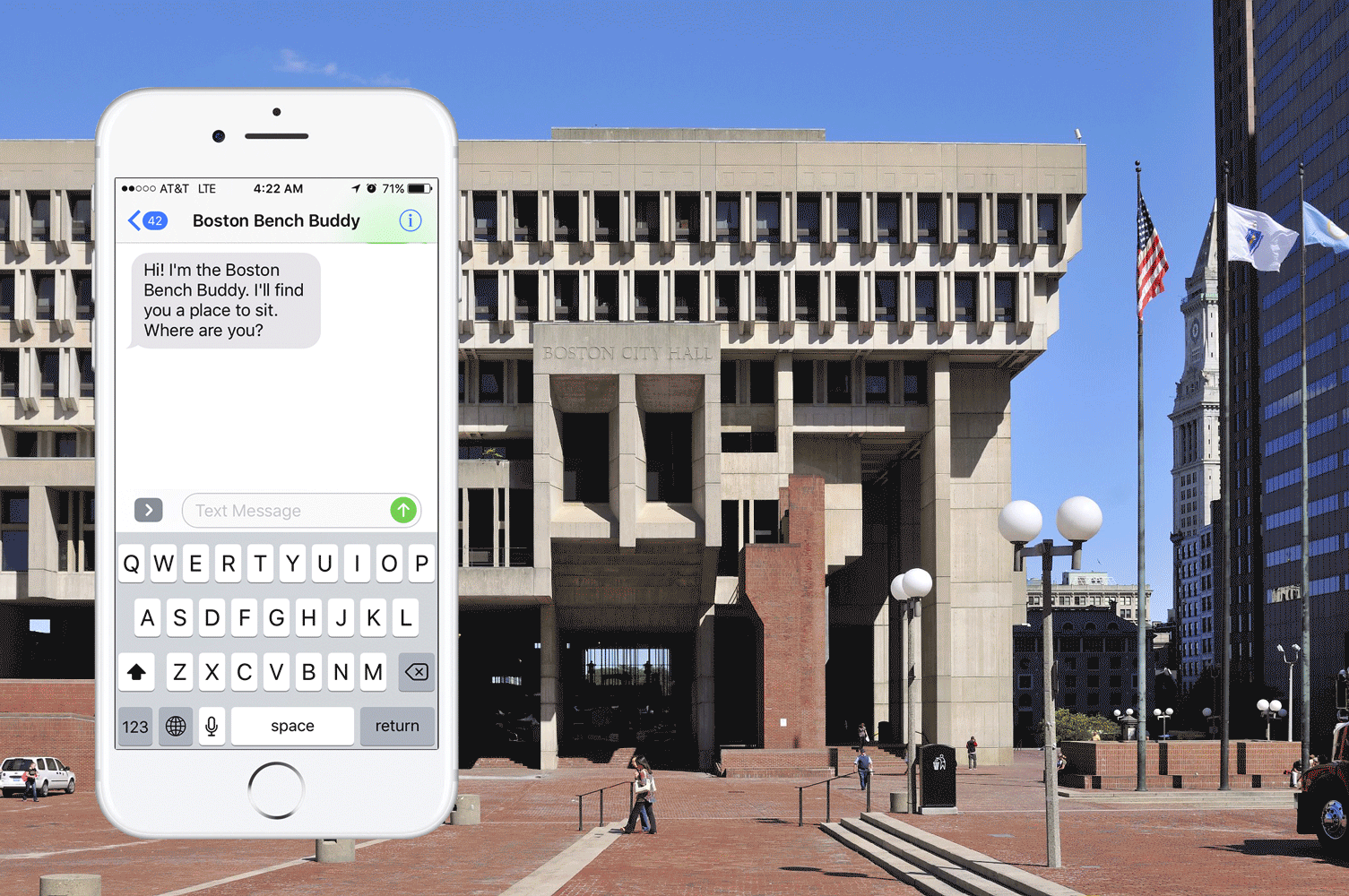
In a summer fellowship at the Mayor's Office of New Urban Mechanics, I explored ways to improve access to public space for older adults. In partnership with both the Elderly Commission and the Third Spaces Lab, I went out to talk to older adults to better understand the experience of aging in Boston.
These conversation revealed that while many older adults drove or used public transit, they enjoyed walking for exercise and independence — and that the availability of seating directly influenced where they could walk.
The Boston Bench Buddy attempts to help residents find a place to sit. Utilizing an SMS interface for compatibility across mobile devices, the service provides directions to a bench or public restroom closest to a user-provided location. The service was developed as a working prototype.
My work also supported efforts to increase the number of benches in Boston, by outlining processes for procurement, planning and installation. I also mapped existing benches, identifying areas of need.
These conversation revealed that while many older adults drove or used public transit, they enjoyed walking for exercise and independence — and that the availability of seating directly influenced where they could walk.
The Boston Bench Buddy attempts to help residents find a place to sit. Utilizing an SMS interface for compatibility across mobile devices, the service provides directions to a bench or public restroom closest to a user-provided location. The service was developed as a working prototype.
My work also supported efforts to increase the number of benches in Boston, by outlining processes for procurement, planning and installation. I also mapped existing benches, identifying areas of need.
︎
Taking a walk / walking to talk
As a summer fellow at the Boston Mayor’s Office of New Urban Mechanics (MONUM), I was asked to explore accessibility for older adults. In a city with 90,000 persons 60 years old or older, and with older adults projected to account for 20% of the total population by 2030, accessibility and aging in place are key topics. Most importantly, accessibility for older adults is actually accessibility for everyone — improvements help all of us, both today and in our futures.To get a sense of what it’s like to be an older adult in Boston, I visited Boston Centers for Youth and Family (BCYF) Seniors Centers like Grove Hall — home to incredibly dedicated staff and wonderful programming for older adults — in addition to parks and public third spaces around the city. Conversations with older adults revealed them to be diverse, independent and motivated. Older adults want to be able to stay in Boston, and they want to be able to continue to enjoy all the city has to offer.
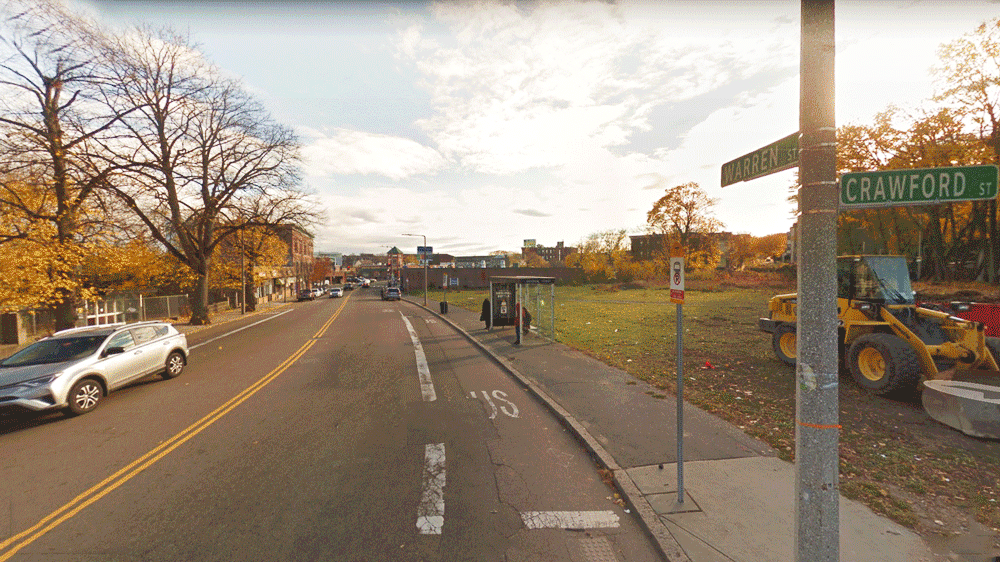
I found that it is the simple things that matter most. As an older adult, being able to walk to a place like Grove Hall, a local bus stop, or a nearby main street depends on good sidewalks, safe intersections and places to sit. But walking around the city gave me the sense that not all streets in Boston have benches, and those that do don’t necessarily have enough.
Checking the data
To confirm my assumptions, I started to map out benches — thanks to a GIS dataset prepared a few years ago — against Boston’s Main Street Districts, neighborhoods and distribution of the population of older adults. The data revealed that some areas of the city, like Allston and Mattapan had few to no benches in supposedly “walkable” areas!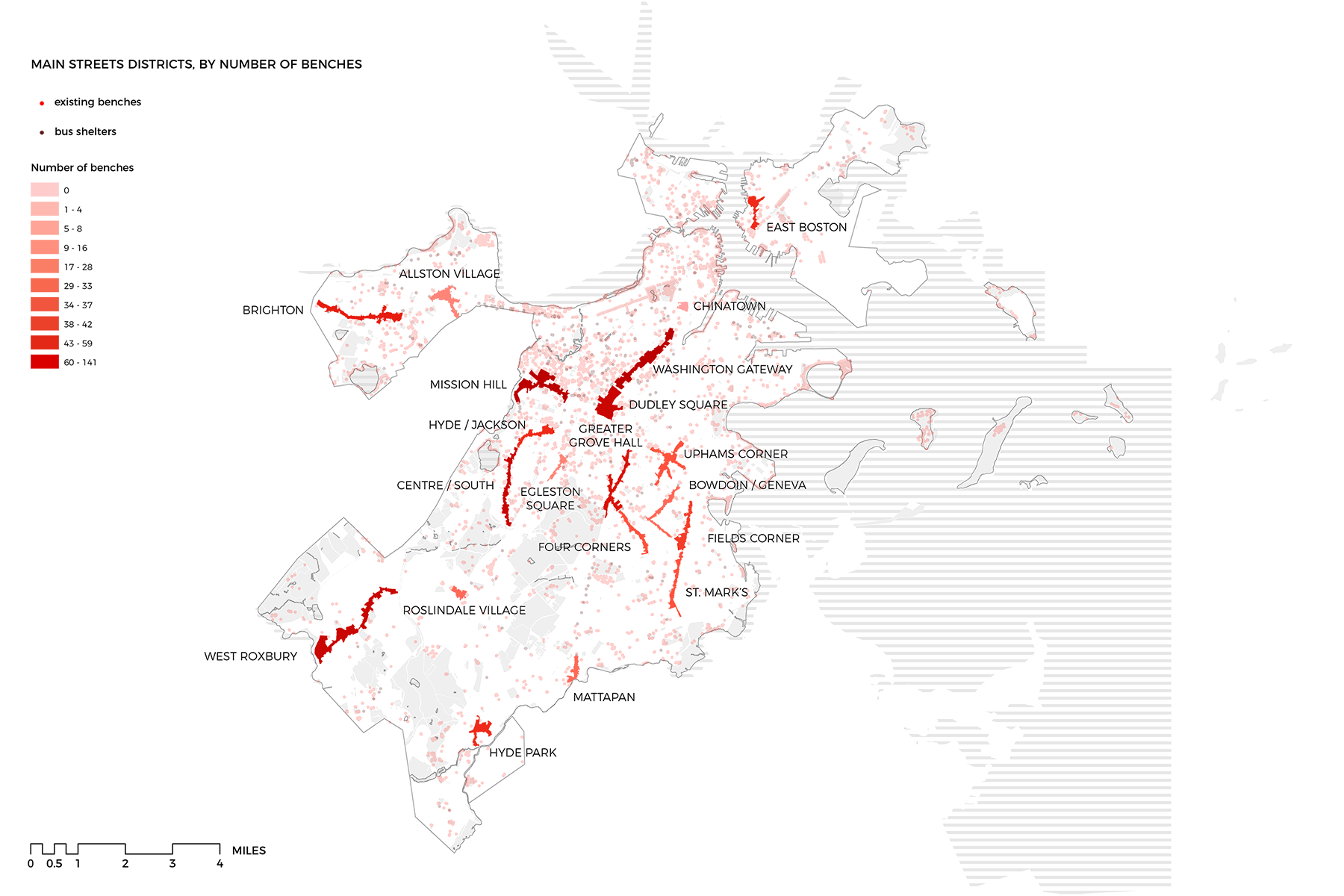

A plan, a map, a guide
How might we make benches more accessible for seniors? After a sprint of ideas and brainstorming, I settled on a few directions.Working with Boston Public Works and the Streets Cabinet, I researched bench funding, procurement and installation; I started to diagram out the challenges and process for getting a standard bench in Boston. I produced detailed maps of benches in key neighborhoods, creating support for advocacy and planning efforts. I also prototyped possible community engagement guides, outlining how future residents of Boston might go about requesting benches in their favorite places
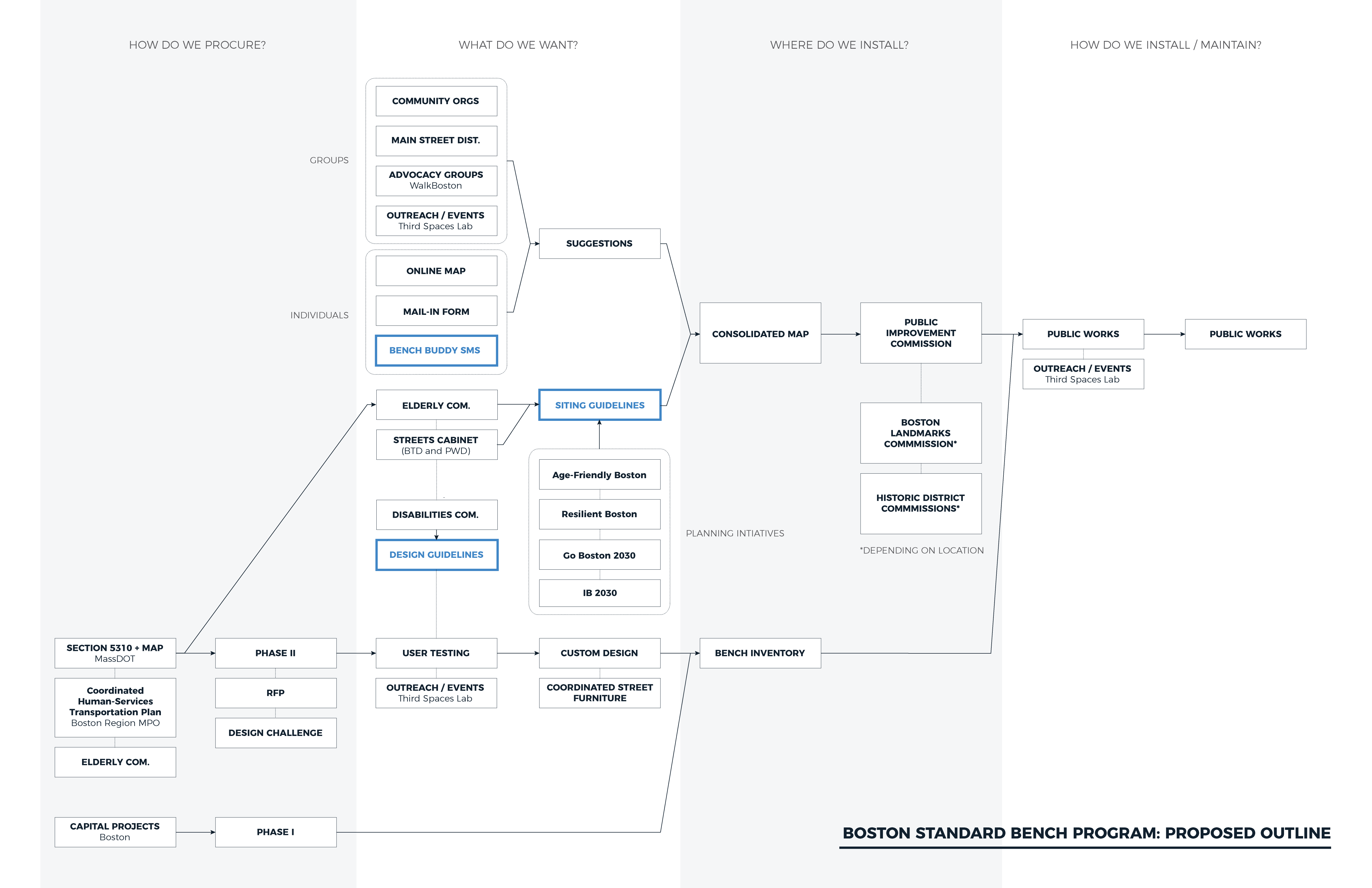

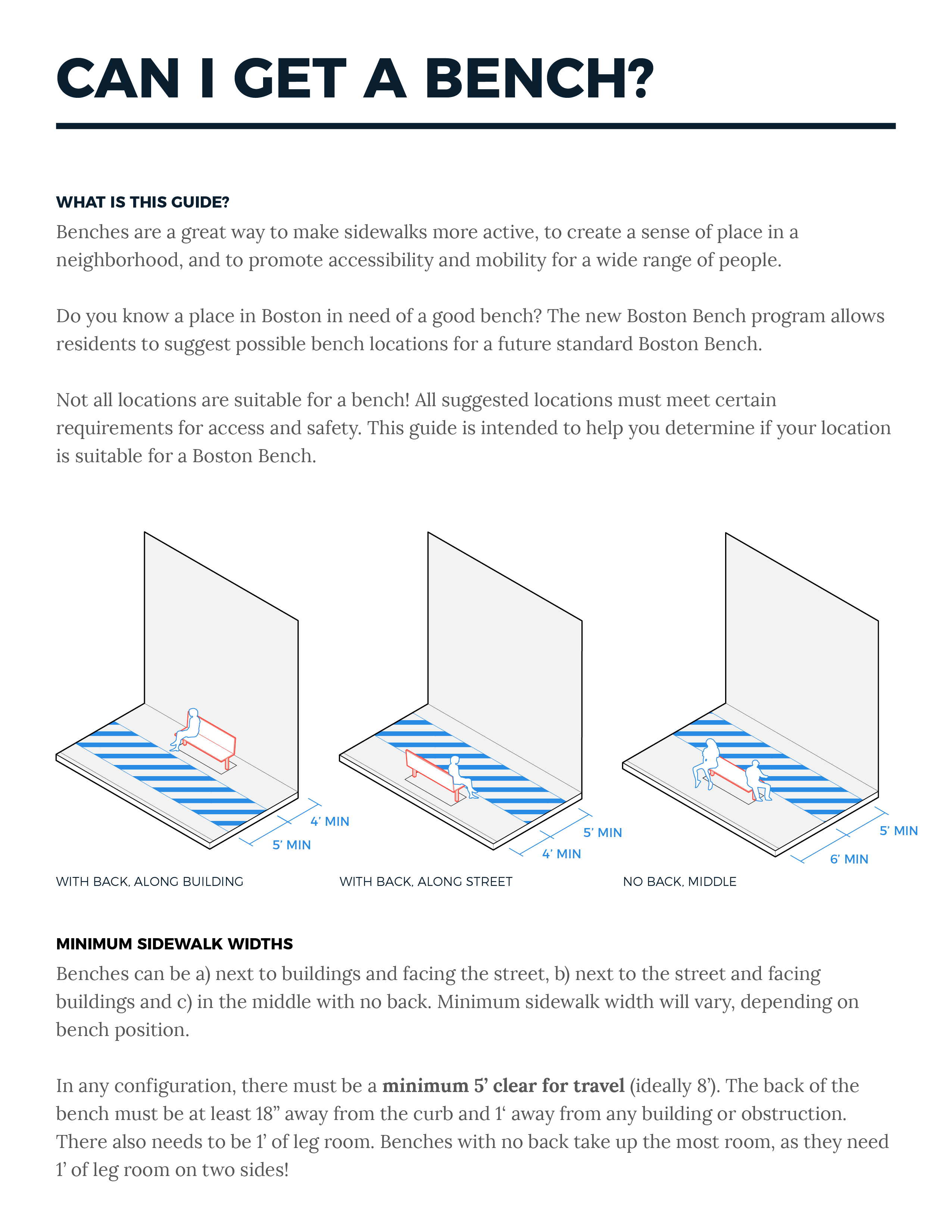
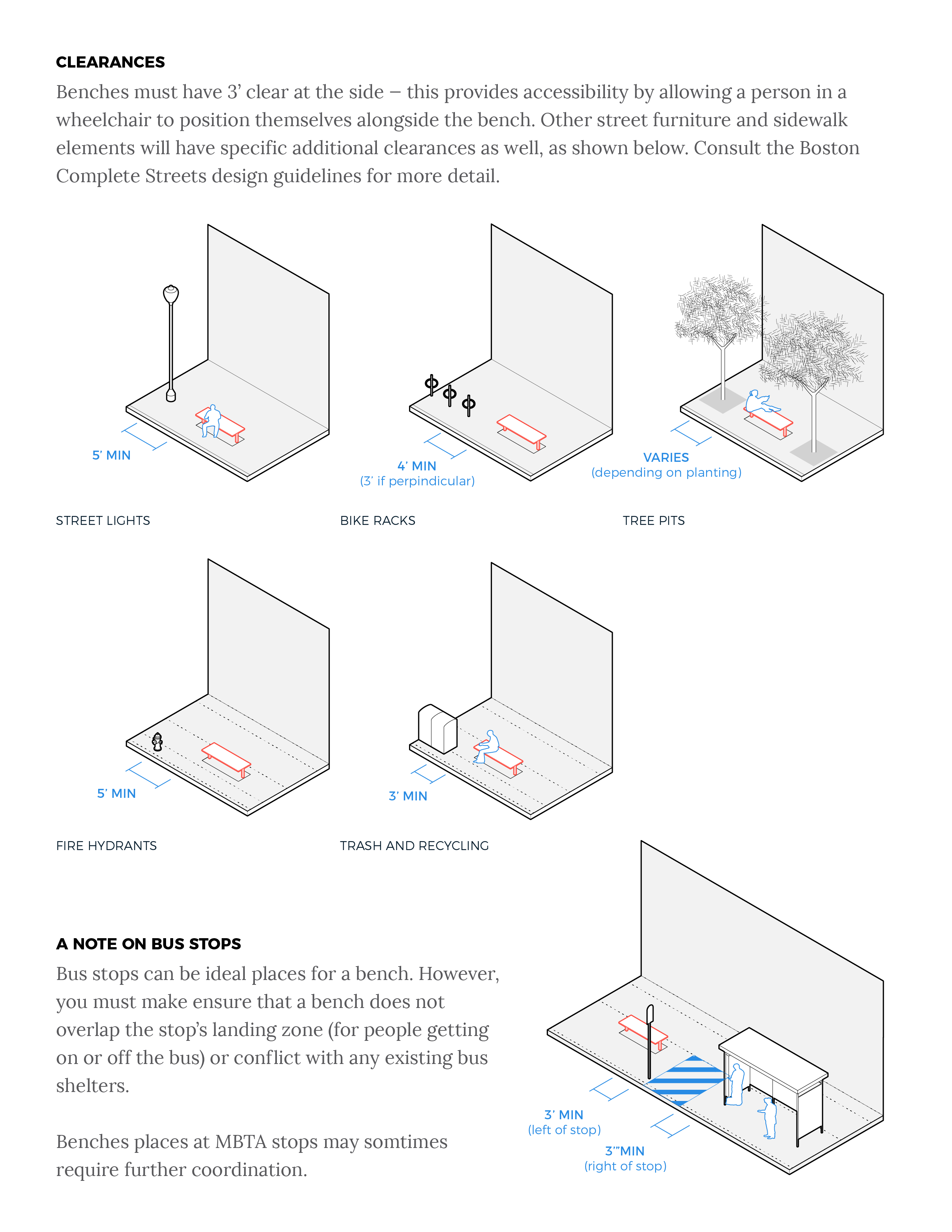
Text a bench (and restroom)
Hoping also to work in the near-term, I also developed the Boston Bench Buddy. The SMS service uses simple SMS chat interfaces to allow any user to find the nearest bench (or public restroom) to a provided location. The service provides text instructions, a link to a web map and the option to name the bench — a feature designed to make the whole system more fun to use.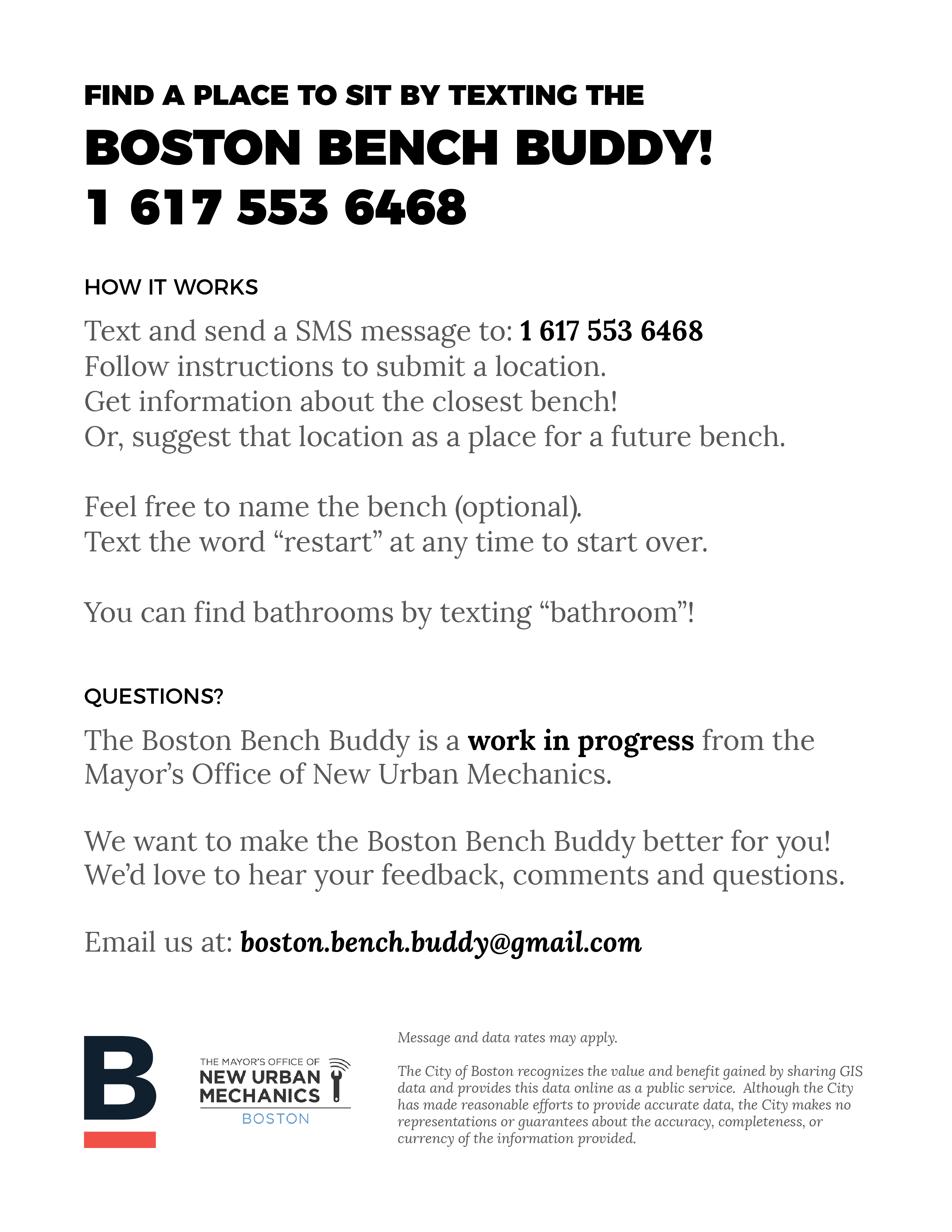

A short user test at a BCYF community meeting showed that seniors enjoyed naming benches, although the group was split on texting: about half were already familiar with the process, while another half were unfamiliar and found the service confusing.
Future use of the Boston Bench Buddy might involve including it in Boston Public Library computer and smartphone training classes, as well as expanding the service to cover the many languages spoken in Boston.
Future use of the Boston Bench Buddy might involve including it in Boston Public Library computer and smartphone training classes, as well as expanding the service to cover the many languages spoken in Boston.
